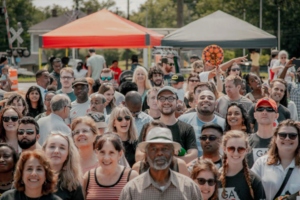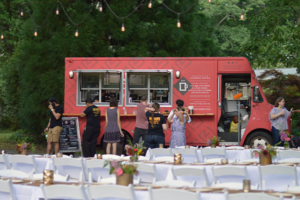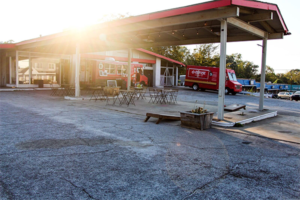
Last week we talked about love. This week (of all weeks!), can we also talk about one of the grittiest works of love: forgiveness?
I remember reading about Corrie Ten Boom’s radical act of forgiveness when, in 1947, a former-Nazi guard from Ravensbruck, the camp where her sister Betsie died and where she suffered, approached her after a talk she gave. He did not recognize her, but she knew exactly who he was.
It could not have been many seconds that he stood there, hand held out, but to me it seemed hours as I wrestled with the most difficult thing I had ever had to do.
For I had to do it — I knew that.*
She not only shook the man’s hand, she forgave him. And thus began the healing she needed in her own heart and, arguably, the healing she went on to foster in the world.
24 years after the genocide in Rwanda, a Hutu man asked for forgiveness from a Hutsi woman named Jaqueline.
The man fell to his knees in front of her, pressing his face into the dust. She was afraid. But she said: “Yes, I forgive you.” “Life must go on,” she says today. “Reconciliation is a process.”**
Similar encounters litter history in the aftermaths of war and genocide. People choose to forgive and, thus, healing begins.
At Refuge, Ali, from Sudan, and James, from South Sudan, fled different sides of a civil war as children and spent many years in different refugee camps. The hurdles to their friendship today are less visceral than Jaqueline or Corrie had to face, but their love for one another is still built on forgiveness. They are a part of a reconciliation process, too.
If there is one lesson to be learned today from the aftermaths of tragedy, it is that healing comes through forgiveness. I know this will sound naïve, but what if we practiced preemptive forgiveness before the aftermath instead of after it?
Of course, Jaqueline is right: “Reconciliation is a process.” Forgiveness, real forgiveness, does not make us complicit, it does not sanitize what is dirty and wrong, and it does not release us from the responsibility to act, to advocate, to work for what is right. But these “battles” don’t have to obliterate another’s humanity, they don’t have to question the right of another human to live and breathe and have an opinion, even if that opinion is patently wrong.
So, what if we forgive others before whatever the aftermath unfurls following the election tomorrow? Before the civil war of opinions rages even hotter, before the acts of violence proliferate, and before we all succumb to the fury of this binary reality we’re living in today?
If you’re wondering what preemptive forgiveness looks like, there are some valuable hints in at the end of the article by our dear friends at Preemptive Love (I suggest reading the entire article here):
If the actions of a violent few can have a far-reaching, destabilizing effect, the actions of a peacemaking few can have a far-reaching, healing effect. The shot not fired; the punch not thrown; the city not burned down; the federal forces not sent in.
Someone has to take the first step.
Someone has to resist the urge to strike. Someone has to call for a ceasefire. Someone has to unwind all the dehumanizing rhetoric in their heads and their echo chambers, and start seeing people to be loved instead of battles to be won.
Someone has to break the cycle.
There is a lot we cannot control in moments like this. But we can decide what kind of people we will be—and what we will do in the aftermath of all that’s been unmade this year.
Together, let’s take the first step toward forgiveness now,
Kitti
* For the complete story, read this PBS account.
** Read more of the story here.




